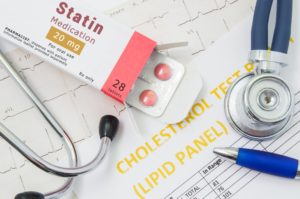
A new study found only six percent of patients took statins as prescribed by their doctor. This prompted researchers to investigate why patients aren’t taking these lifesaving medications.
The study included 5,468 patients diagnosed with heart disease who received statin prescriptions to reduce cholesterol. The researchers looked at who took their medications and any clinical adverse effects such as stroke or heart attack over five years.
Principal investigator Heidi May explained, “We conducted this study because statins are really important to prevent recurrent events or deaths among patients with cardiovascular disease. Adherence has always been an issue with patients who have been put on this medication.”
“People do worse when they don’t take their medication. The more patients adhered to their statin regimen, the better that they did. So, if you want to increase your chances of not having another cardiovascular event, then taking the medicine is really important and can help,” May continued.
The study found that 25 percent of patients didn’t fill out their initial prescription and 25 percent didn’t fulfill their follow-up prescription.
With all medications, there is a risk of side effects. Reported side effects of statins include muscle weakness, which occurs in about one in 10,000 patients. Studies from the American Heart Association found few differences between those who took statins and those on a placebo.
Other studies have found that statins may increase the risk of diabetes, but this is more so if patients had prediabetes.
Statins are still considered the gold standard when it comes to treating cholesterol as they have been shown to significantly reduce the risk of a cardiovascular-related event.
In a 2016 article on statins and their side effects, the authors wrote, “[E]xaggerated claims about side-effect rates with statin therapy may be responsible for its underuse among individuals at increased risk of cardiovascular events. Whereas the rare cases of myopathy [muscle pain] and any muscle-related symptoms that are attributed to statin therapy generally resolve rapidly when treatment is stopped, the heart attacks or strokes that may occur if statin therapy is stopped unnecessarily can be devastating.”
In the long run, the benefits of statins outweigh the risks. If your doctor has prescribed statins to you, you should adhere to that regime as recommended for best results to protect your heart.